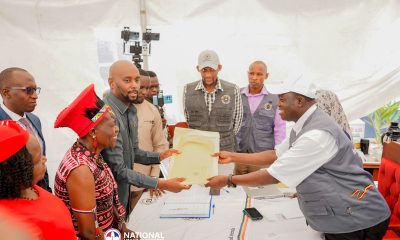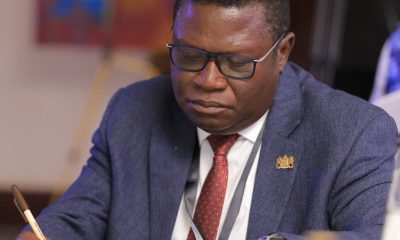Politics
NUP Faces Internal Turmoil: Smear Campaigns Threaten Party Unity Ahead of Kampala Woman MP Race
The National Unity Platform (NUP) is grappling with internal friction as tensions escalate between Kampala Woman MP aspirants Shamim Malende, the incumbent, and Zahara Luyirika, the current KCCA speaker. The rivalry, which emerged after Luyirika declared her intention to contest Malende’s seat, has resulted in an acrimonious campaign marked by smear tactics and blackmail, prompting party leadership intervention.
The conflict exposes deeper challenges for opposition parties in Uganda, particularly when high-stakes electoral contests intersect with personal ambitions. Malende’s tenure has been criticised by Luyirika’s supporters for her prolonged absences due to health issues, a narrative that has fueled Luyirika’s campaign and emboldened her faction. This situation exemplifies the classic intra-party competition theory, which posits that internal rivalries often emerge when party structures fail to enforce clear rules for succession or candidate selection.
NUP’s Deputy President for Buganda, Muwanga Kivumbi, has publicly warned both candidates, emphasising the party’s value of discipline and the potential for disqualification if the behaviour continues. This intervention reflects a preventive strategy aimed at safeguarding party cohesion, a lesson echoed in political science literature where factionalism in dominant opposition parties can erode electoral credibility and reduce voter confidence.
Historically, Ugandan political parties have faced similar internal crises. The Uganda People’s Congress (UPC) and Democratic Party (DP) have both experienced leadership and candidacy disputes that threatened their electoral prospects. In many of these cases, swift mediation and clear enforcement of party regulations were critical to preserving unity. NUP’s approach mirrors this precedent, highlighting the delicate balance between encouraging democratic competition within a party and maintaining collective discipline.
From a political theory perspective, the situation can also be analysed through the lens of patronage politics and organisational cohesion. As a dominant opposition party in Kampala, NUP relies on centralised leadership under President Robert Kyagulanyi Ssentamu (Bobi Wine) to manage internal disputes. Kivumbi’s assertion that the President personally ordered intervention underscores the top-down approach typical in parties where charisma and leadership authority are central to conflict resolution. Such intervention is essential to prevent factionalism from undermining the party’s broader electoral objectives, particularly in high-stakes constituencies like Kampala.
Furthermore, the Malende-Luyirika rivalry illustrates the challenges of candidate-centred politics, where personal reputations and local narratives can overshadow party ideology. While NUP commands strong support in Kampala and its flag bearers are likely to perform well in the general elections, unresolved internal conflicts risk diluting this advantage. Political analysts argue that unchecked infighting can lead to voter disillusionment, weaken campaign messaging, and, in extreme cases, fracture the party’s urban support base.
In conclusion, NUP’s handling of the Kampala Woman MP contest serves as a litmus test for its internal governance and crisis management capacity. By emphasising discipline, warning against blackmail, and invoking the potential for disqualification, the party is attempting to reinforce cohesion while preserving its electoral appeal. Yet, the outcome will largely depend on the aspirants’ willingness to subordinate personal ambitions to party unity—a recurring challenge for Uganda’s multiparty democracy, where opposition consolidation is often as critical as winning votes.
This episode underscores a broader lesson for political parties across Africa: managing internal rivalries with transparent, enforceable rules and strong leadership intervention is pivotal to sustaining party credibility, maximizing electoral performance, and preventing factionalism from derailing long-term political objectives.
Comments





















